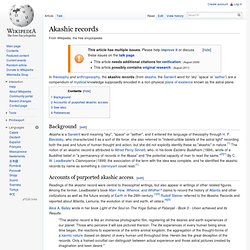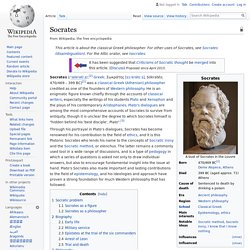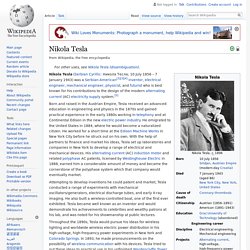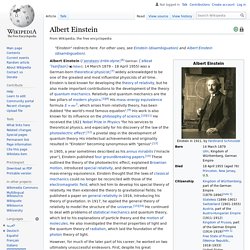

Angels – Hindu - Akashic Records - Chitragupta - Yama - Dharam Raja - Death - Reincarnation. By Whitney Hopler Hindus believe that a deity named Chitragupta is in charge of recording all the deeds -- both good and bad -- that people perform during their lifetimes.

Chitragupta is an angelic being called a deva, and he works for the Hindu god of death, Yama (who is also sometimes known as Dharam Raja) writing down people's actions in the Akashic records (a mystical code of everything that has ever happened in the universe). Chitragupta's name is similar to the names of the two angels in Sikhism who record people's deeds during their lifetimes: Chitar and Gupat (whose alternate names are Chitra and Gupta, which together form Chitragupta's name). Recording Every Action Chitragupta notices and records absolutely everything a person chooses to do during his or her lifetime, believers say.
In his book Fasts and Festivals of India, Manish Verma writes that, "Chitra Gupta literally means 'hidden picture' and it is he who presents a true picture of our actions after death. " Akashic records. Background[edit] Akasha is a Sanskrit word meaning "sky", "space" or "aether", and it entered the language of theosophy through H.

P. Blavatsky, who characterized it as a sort of life force; she also referred to "indestructible tablets of the astral light" recording both the past and future of human thought and action, but she did not explicitly identify these as "akashic" in nature.[1] The notion of an akashic record is attributed to Alfred Percy Sinnett, who, in his book Esoteric Buddhism (1884), wrote of a Buddhist belief in "a permanency of records in the Akasa" and "the potential capacity of man to read the same. "[2][1] By C. Accounts of purported akashic access[edit] Readings of the akashic record were central to theosophist writings, but also appear in writings of other related figures. Alice A. "The akashic record is like an immense photographic film, registering all the desires and earth experiences of our planet. Levi H. See also[edit] Socrates.
Socrates (/ˈsɒkrətiːz/;[2] Greek: Σωκράτης [sɔːkrátɛːs], Sōkrátēs; 470/469 – 399 BC)[1] was a classical Greek (Athenian) philosopher credited as one of the founders of Western philosophy.

He is an enigmatic figure known chiefly through the accounts of classical writers, especially the writings of his students Plato and Xenophon and the plays of his contemporary Aristophanes. Plato's dialogues are among the most comprehensive accounts of Socrates to survive from antiquity, though it is unclear the degree to which Socrates himself is "hidden behind his 'best disciple', Plato".[3] Through his portrayal in Plato's dialogues, Socrates has become renowned for his contribution to the field of ethics, and it is this Platonic Socrates who lends his name to the concepts of Socratic irony and the Socratic method, or elenchus.
Socratic problem Nothing written by Socrates remains extant. Socrates as a figure Socrates as a philosopher Biography Early life Military service. Nikola Tesla. Nikola Tesla (Serbian Cyrillic: Никола Тесла; 10 July 1856 – 7 January 1943) was a Serbian-American[3][4] inventor, electrical engineer, mechanical engineer, physicist, and futurist who is best known for his contributions to the design of the modern alternating current (AC) electricity supply system.[5] Born and raised in the Austrian Empire, Tesla received an advanced education in engineering and physics in the 1870s and gained practical experience in the early 1880s working in telephony and at Continental Edison in the new electric power industry.

He emigrated to the United States in 1884, where he would become a naturalized citizen. He worked for a short time at the Edison Machine Works in New York City before he struck out on his own. With the help of partners to finance and market his ideas, Tesla set up laboratories and companies in New York to develop a range of electrical and mechanical devices. Early years Tesla's baptismal record, 28 June 1856 Working at Edison. Albert Einstein. German-born scientist who developed the theory of relativity Albert Einstein ( EYEN-styne;[4] German: [ˈalbɛʁt ˈʔaɪnʃtaɪn] ( listen); 14 March 1879 – 18 April 1955) was a German-born theoretical physicist[5] who developed the theory of relativity, one of the two pillars of modern physics (alongside quantum mechanics).[3][6] His work is also known for its influence on the philosophy of science.[7][8] He is best known to the general public for his mass–energy equivalence formula E = mc2, which has been dubbed "the world's most famous equation".[9] He received the 1921 Nobel Prize in Physics "for his services to theoretical physics, and especially for his discovery of the law of the photoelectric effect",[10] a pivotal step in the development of quantum theory.

The son of a salesman who later operated an electrochemical factory, Einstein was born in the German Empire, but moved to Switzerland in 1895, forsaking his German citizenship the following year. Life and career Marriages and children.